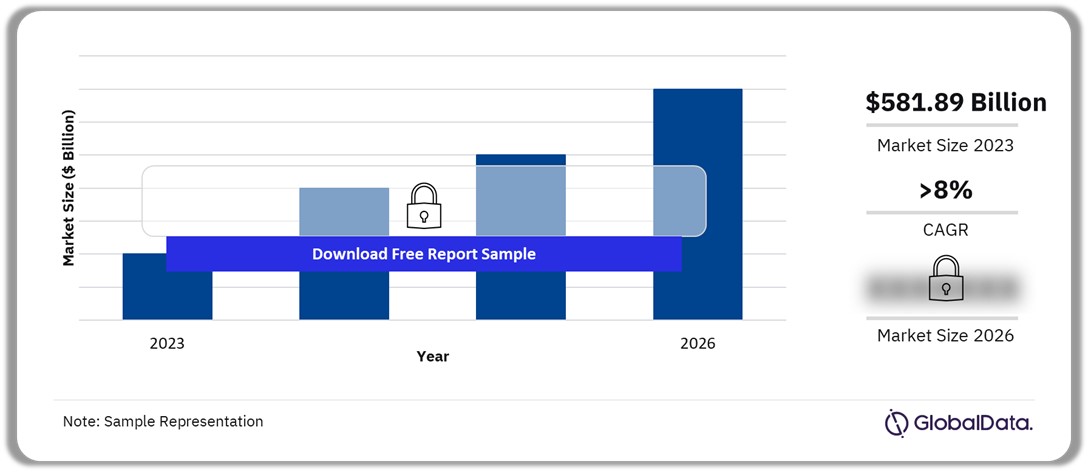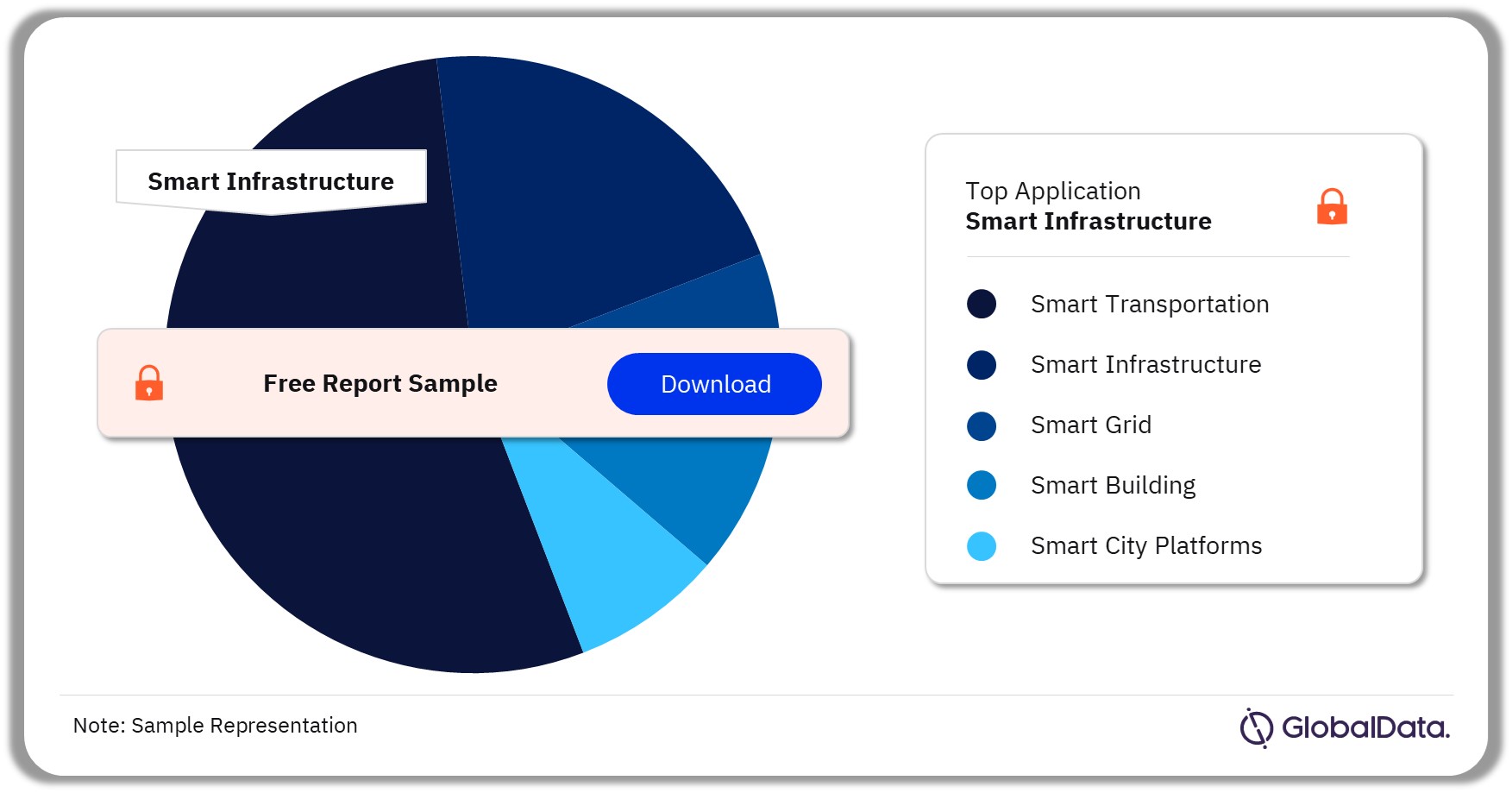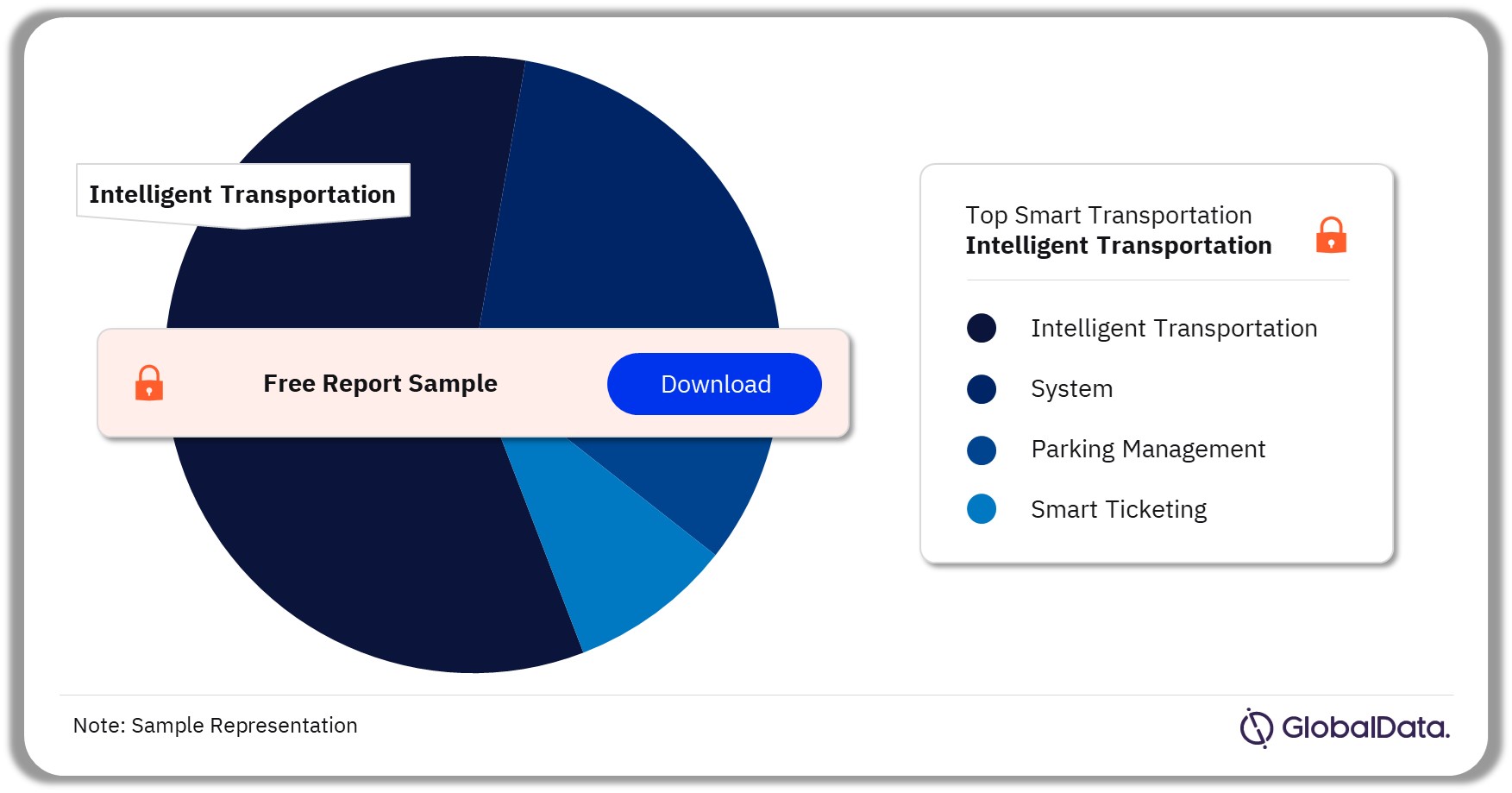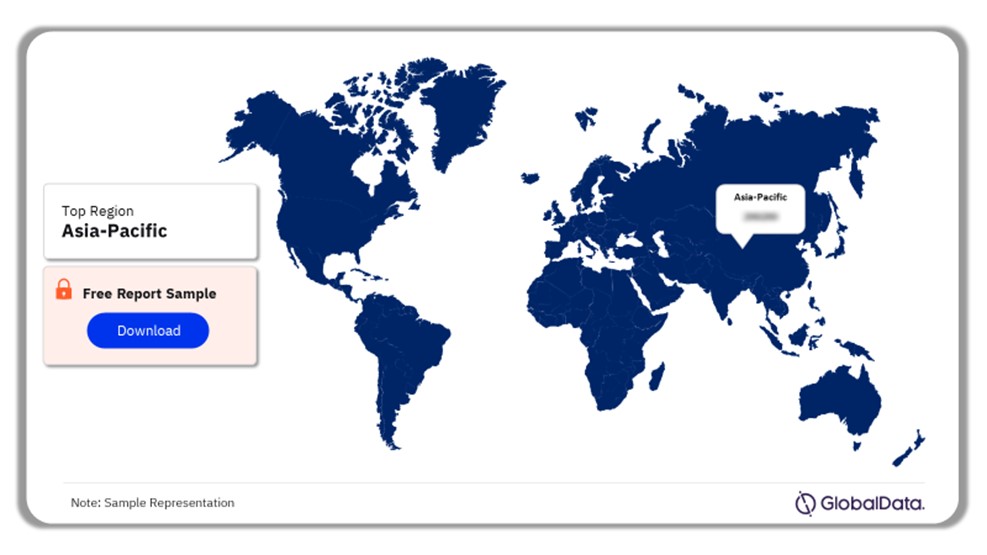Smart Cities Market Size, Share, Trends, Analysis and Forecast by Region, Application, Infrastructure, Grid and Segment Forecast to 2026
Powered by ![]()
Access in-depth insight and stay ahead of the market
Explore actionable market insights from the following data in our ‘Smart Cities Market’ report:
- Smart cities market outlook: analysis as well as historical figures and forecasts of revenue opportunities from the channel type, business model, spend category, and regional segments.
- Competitive landscape: an examination of the positioning of leading players in the smart cities market.
- Company snapshots: analysis of the market position of leading service providers in the smart cities market.
- Underlying assumptions behind our published base-case forecasts, as well as potential market developments that would alter, either positively or negatively, our base-case outlook.
How is the ‘Smart Cities Market’ report different from other reports in the market?
- This market intelligence report offers a thorough, forward-looking analysis of the global smart cities market by channel type, business model, spend category, and key opportunities in a concise format to help executives build proactive and profitable growth strategies.
- Accompanying GlobalData’s Forecast products, the report examines the assumptions and drivers behind ongoing and upcoming trends in smart cities markets.
- Porter’s five forces analysis: demonstrates the strength of suppliers and buyers along with market competition in the market.
- The report also highlights key application segments (Smart Transportation, Smart Infrastructure, Smart Grid, Smart Building, and Smart City Platform)
- The report also highlights key smart transportation segments (Intelligent Transportation, Parking Management, and Smart Ticketing)
- The report also highlights key smart infrastructure segments (City Surveillance, Smart Lighting, and Command & Control Systems)
- The report provides an easily digestible market assessment for decision-makers built around in-depth information gathered from local market players, which enables executives to quickly get up to speed with the current and emerging trends in smart cities markets.
- The broad perspective of the report coupled with comprehensive, actionable detail will help BFSI stakeholders, service providers, and other smart city players succeed in growing the smart cities market globally.
We recommend this valuable source of information to anyone involved in:
- Companies Associated with the Entire Value-Chain of Smart City Platforms – Technology Leaders and Startups
- Smart Transportation Companies – Intelligent Transportation/Parking Management/Smart Ticketing
- Smart Building and Infrastructure Companies – City Surveillance/Smart Lighting /Command & Control Systems
- Smart City Services Provider Companies
- Business Development and Market Intelligence
- Investment Analysts and Portfolio Managers
- Professional Services – Investment Banks, PE/VC firms
- M&A/Investment, Management Consultants, and Consulting Firms
To Get a Snapshot of the Smart Cities Market Report, Download a Free Report Sample
Smart Cities Market Overview
The smart cities market size will be valued at $581.89 billion in 2023 and is expected to grow at a compound annual growth rate (CAGR) of 8% over the forecast period. The EU is bringing together several smart city ecosystem players in a host of programs and initiatives with the aim to boost partnerships, increase access to funding, and experience sharing. Such ecosystem players include city councils, private investors, policymakers, industries, businesses, and smart city technology solution providers. These initiatives will drive smart cities market growth during the forecast period.
Smart Cities Market Outlook, 2023-2026 ($ Billion)

Buy the Report to Get More Insights into the Smart Cities Market Forecast, Download a Free Report Sample
The European region dominated the smart cities market and is projected to grow at a CAGR of 7.9% over the forecast period. The rapid implementation of smart city projects and the number of existing digital cities in the region drive the smart cities market growth which is anticipated to be steady over the forecast period.
Furthermore, advancements in smart city technologies have improved the efficiency of smart city solutions and that, in turn, has strengthened the confidence of ministries and governments in deploying these solutions. Effective use of emerging tech such as Artificial Intelligence & Internet of Things (IoT) is further anticipated to increase the adoption and implementation of smart city solutions over the forecast period.
Governments and administrations around the world have been favorable towards implementing smart city solutions owing to several advantages they provide for smooth operations of numerous activities carried out in the city on daily basis. Smart city solutions have also been observed to be critical in improving overall safety, reducing the carbon footprint, and improving the efficiency of city resources management which has also positively impacted the public sentiment towards the adoption of smart city solutions.
| Market Size (2023) | $581.89 billion |
| Market Size (2026) | $744.15 billion |
| CAGR (2022-2026) | 8% |
| Forecast Period | 2022-2026 |
| Historic Period | 2019-2021 |
| Report Scope & Coverage | Revenue Forecast, Competitive Index, Company Market Share, Growth Trends |
| Application Segment | Smart Transportation, Smart Infrastructure, Smart Grid, Smart Building, and Smart City Platform. |
| Smart Transportation Segment | Intelligent Transportation, Parking Management, and Smart Ticketing. |
| Smart Infrastructure Segment | City Surveillance, Smart Lighting, and Command & Control Systems. |
| Key Companies | Amazon Web Services, Google, and International Business Machine Corporation (IBM), Microsoft Corp, Alibaba Holdings Ltd, Tencent Holdings Ltd, Oracle Corp, Salesforce Inc, SAP SE, Cisco Systems Inc |
| Enquire & Decide | Discover the perfect solution for your business needs. Enquire now and let us help you make an informed decision before making a purchase. |
Smart Cities Market - COVID-19 Impact
The pandemic’s fallout means cities face a growing number of problems during a period of serious economic uncertainty. As a result, cities will view proposed smart city initiatives differently. For it to be a justifiable investment, an initiative must have a clear, relevant purpose and be as cost-effective as possible. The alternative technologies of only vaguely articulated benefit will become less attractive to cities. Boston was an early pioneer of this approach. In its 2016 Smart City Playbook, Boston encouraged tech vendors to engage with residents and identify the problems that needed addressing before picking up the phone. Smart cities now have no choice but to adopt this mantra.
The last two years have produced numerous examples of cities prioritizing post-pandemic resilience over technological gloss. Columbus is expanding affordable wireless internet access to underserved communities to ensure online education works for the underprivileged. Rotterdam is combatting the unemployment exacerbated by the pandemic by awarding digital tokens to companies that employ vulnerable residents. These tokens can be traded similarly to how carbon offsets can be converted into tradeable assets in a carbon market.
While the pandemic has presented challenges, it has also served as a catalyst for innovation and digital transformation in smart cities. The crisis has demonstrated the potential of smart city technologies to address urban challenges and improve quality of life, leading to a renewed focus on resilient, sustainable, and citizen-centric smart city solutions. The pandemic has also reinforced the importance of sustainable and green solutions in cities. Smart city initiatives have prioritized sustainable transportation, energy-efficient buildings, waste management, and renewable energy adoption. The crisis has provided an opportunity to reevaluate urban planning and prioritize environmental sustainability in future smart city projects.
Smart Cities Market Segmentation by Application
Smart cities applications primarily include smart transportation, smart infrastructure, smart grid, smart building, and smart city platform segments.
As of 2022, the smart transportation segment captured the highest share owing to the inclusion of key components such as smart mobility, parking management, and smart ticketing, among others. As urban populations keep growing, creating an effective transport network is one of the critical challenges facing cities. The pandemic has only exacerbated the challenge. Of all the areas of city life, transport has been one of the most heavily impacted by the pandemic. Social distancing has caused the demand for public transportation to plummet in cities worldwide. Even after vaccination programs, remote working and the ongoing fear of contagion means fewer people are using public transport.
Transportation infrastructure uses data to improve a city’s livability and sustainability by reducing traffic. Therefore, it will be crucial when traffic levels increase post-pandemic. Key applications include intelligent traffic systems (ITS), real-time road navigation, and infrastructure predictive maintenance. Autonomous vehicles hold much promise for urban transportation networks. However, extensive sensor networks are necessary to enable the V2I, I2V, and V2V communications required for autonomous vehicles to operate safely in already congested cities.
Smart Cities Market Share by Application, 2023 (%)

Buy the Report to get More Insights into the Segment-Specific Revenues and Shares, Download a Free Report Sample
The smart infrastructure segment accounted is anticipated to grow at a CAGR of more than 6% over the forecast period. This increase is reflected mainly from the post pandemic exposure of the fragility of modern cities. For increased resilience, cities have invested in two infrastructure types: health infrastructure that directly tackles the spread of COVID-19 and infrastructure that improves citizens’ digital access.
Smart Cities Market Segmentation by Smart Transportation
The smart transportation segment includes intelligent transportation, parking management, and smart ticketing. The intelligent transportation segment is anticipated to grow at a CAGR of more than 8% over the forecast period. Smart transportation is a crucial component of smart cities, aiming to enhance mobility, reduce congestion, improve safety, and minimize environmental impact. It leverages advanced technologies and data-driven solutions to create efficient and sustainable transportation systems.
Smart Cities Market Share by Smart Transportation, 2023 (%)

Buy the Report to Get More Insights into the Smart Cities Market Smart Transportation
Download a Free Report Sample
The growth of the intelligent transportation segment is attributed to the increased penetration of smart mobility solutions in smart city structures around the globe. The implementation of smart mobility solutions is driven by the need to reduce the number of vehicles on roads, effectively reducing traffic congestion. Furthermore, factors such as reducing the carbon footprint of transportation, improving road safety, and operational efficiency of transportation have also contributed to the segment growth.
Smart Cities Market Segmentation by Smart Infrastructure
Based on smart infrastructure, the smart cities market is categorized into city surveillance, smart lighting, and command & control systems. The command & control systems segment captured the largest market share at 35% in the year 2022. Command & control systems of a smart city include different operating mechanisms that supervise several components of a smart city framework. The criticality of CCS in smart cities has led to its increased adoption over the last few years and is anticipated to continue over the forecast period. The city surveillance segment is anticipated to witness healthy growth at a CAGR of more than 7% over the forecast period.
Smart Cities Market Analysis by Region
Europe’s smart city market value was the highest in 2022 and is projected to grow at a CAGR of 7.9% over the forecast period. The regional demand was led by the implementation of innovative smart city solutions across countries such as the UK, Germany, France, and Spain, among others.
The Asia-Pacific (APAC) region represents a significant and rapidly growing market for smart cities. APAC countries are investing heavily in the development and implementation of smart city initiatives to enhance the quality of life for their residents and address urban challenges. Overall, the APAC smart city market presents immense opportunities for technology providers, urban planners, and stakeholders to create intelligent, connected, and sustainable cities that enhance the quality of life for residents and drive economic growth. For instance, countries like Singapore and South Korea are considered leaders in smart city initiatives, while emerging economies like India and Indonesia are witnessing significant growth potential.
Asia Pacific Smart Cities Market Share by Country, 2023 (%)

Buy the Report to Get More Insights into the Smart Cities Market
Download a Free Report Sample
North America is projected to witness steady growth at a CAGR exceeding 6% over the forecast period. The North American region is characterized by a strong inclination towards rapid digital transformation and implementation of smart city solutions such as smart mobility, smart buildings, and smart grid among others. The adoption of next-gen technologies coupled with conducive governments and administrations is anticipated to drive the regional growth over the forecast period.
Smart Cities Market - Competitive Landscape
The smart cities sector exhibits a moderate level of consolidation, although the competition is gradually intensifying due to the emergence of start-ups and new ventures. Major participants in the smart cities market consist of Microsoft Corp, Accenture, IBM, Hitachi, and other notable entities.
In the competitive landscape of smart cities, mergers and acquisitions play a significant role as vendors often collaborate on a project basis to provide tailored solutions. Moreover, the leading competitors are actively investing in research and development to drive innovation in their products/services while ensuring timely delivery. Furthermore, collaboration and strategic partnerships are common in the smart cities market. Companies often join forces to leverage their complementary capabilities and create comprehensive smart city solutions. Partnerships can include technology providers, infrastructure companies, utility providers, and government entities working together to address urban challenges effectively.
Leading Players in the Smart Cities Market
- Microsoft Corp
- Hikvision
- Hitachi
- Honeywell
- Alibaba Group
- Cisco Systems Inc
- International Business Machines Corp (IBM)
- Huawei Technologies Co. Ltd.
- iFlytek
Other Smart Cities Market Vendors Mentioned
Johnson Controls, Nokia, Schneider Electric, and ZTE Corp.
To Know More About Leading Smart Cities Market Players, Download a Free Report Sample
Smart Cities Market Segments and Scope
GlobalData Plc has segmented the smart cities market report by application and region:
Smart Cities Application Outlook (Revenue, USD Million, 2019-2026)
- Smart Transportation
- Intelligent Transportation
- Parking Management
- Smart Ticketing
- Smart Infrastructure
- City Surveillance
- Smart Lighting
- Command & Control Systems
- Smart Grid
- Smart Building
- Smart City Platforms
Smart Cities Regional Outlook (Revenue, USD Million, 2019-2026)
- North America
- US
- Canada
- Europe
- Germany
- UK
- France
- Spain
- Italy
- Rest of Europe
- Asia Pacific
- China
- Japan
- India
- Australia
- Rest of Asia Pacific
- South & Central America
- Brazil
- Mexico
- Colombia
- Rest of South & Central America
- Middle East & Africa
- Kingdom of Saudi Arabia (KSA)
- United Arab Emirates (UAE)
- South Africa
- Rest of Middle East & Africa
Key Players
Microsoft CorpHangzhou Hikvision Digital Technology Co Ltd
Hitachi Ltd
Honeywell International Inc
Alibaba Group Holding Ltd
Cisco Systems Inc
International Business Machines Corp
Huawei Technologies Co Ltd
iFlytek Co Ltd
Table of Contents
Table
Figures
Frequently asked questions
-
What was the smart cities market size in 2023?
The smart cities market size will be valued at $581.89 billion in 2023.
-
What will be the smart cities market size in 2026?
The smart cities market size is expected to reach US$ 744.1 billion by 2026.
-
What is the smart cities market growth rate?
The smart cities market is expected to grow at a CAGR of 8.1% during the forecast period (2022-2026).
-
What are the key smart cities market drivers?
The inclination of population to migrate to cities is one of the primary reasons for the world becoming increasingly urban. Cities cover only 2% of the Earth’s surface but account for 50% of its population, which has fueled the growth of smart cities.
-
What are the key smart cities market segments?
Application: Smart Transportation, Smart Infrastructure, Smart Grid, Smart Building, and Smart City Platform
Smart Transportation: Intelligent Transportation, Parking Management, and Smart Ticketing.
Smart Infrastructure: City Surveillance, Smart Lighting, and Command & Control Systems
-
Which are the leading smart cities companies?
The leading smart cities companies are Microsoft Corp, Accenture, IBM, Hitachi, Honeywell, Alibaba Group, Huawei Technologies Co. Ltd., and Hikvision, among others.
-
Is there a third level of segmentation in the report?
GlobalData’s focus is on providing reliable and accurate data that is supported by robust research methodology. Our reports undergo rigorous quality checks and are based on primary and secondary research sources, ensuring that the numbers and insights provided are trustworthy. However, despite the best efforts to gather comprehensive data, there could be instances where the available data is limited, making it challenging to provide third level segmentation. In such cases, GlobalData may choose to provide high-level insights and general trends rather than forcing segmentation that may not be backed by sufficient data. This approach ensures that the report’s overall quality and credibility are maintained.
Get in touch to find out about multi-purchase discounts
reportstore@globaldata.com
Tel +44 20 7947 2745
Every customer’s requirement is unique. With over 220,000 construction projects tracked, we can create a tailored dataset for you based on the types of projects you are looking for. Please get in touch with your specific requirements and we can send you a quote.
Related reports
View more Technology reports









